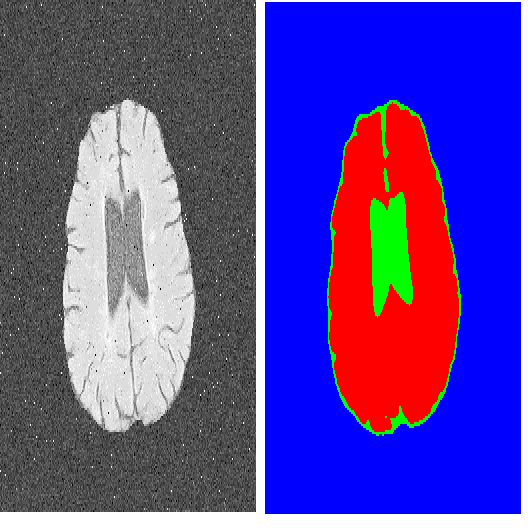We present Deep Region Competition (DRC), an algorithm designed to extract foreground objects from images in a fully unsupervised manner. Foreground extraction can be viewed as a special case of generic image segmentation that focuses on identifying and disentangling objects from the background. In this work, we rethink the foreground extraction by reconciling energy-based prior with generative image modeling in the form of Mixture of Experts (MoE), where we further introduce the learned pixel re-assignment as the essential inductive bias to capture the regularities of background regions. With this modeling, the foreground-background partition can be naturally found through Expectation-Maximization (EM). We show that the proposed method effectively exploits the interaction between the mixture components during the partitioning process, which closely connects to region competition, a seminal approach for generic image segmentation. Experiments demonstrate that DRC exhibits more competitive performances on complex real-world data and challenging multi-object scenes compared with prior methods. Moreover, we show empirically that DRC can potentially generalize to novel foreground objects even from categories unseen during training.
翻译:我们提出了深海区域竞争(DRC),这是一种旨在以完全不受监督的方式从图像中提取前景物体的算法。前景提取可被视为一个特殊的一般图像分割实例,其重点是从背景中识别和分离物体。在这项工作中,我们重新思考前景提取,方法是将以前基于能源的提取与以专家混合(MOE)形式的基因化图像模型(MOE)相协调,我们在该模型中还引入了学习到的像素再分配作为获取背景区域规律的基本诱导偏差。通过这种模型,可以自然地发现地表前景分割。我们表明,拟议的方法有效地利用了在分割过程中混合成分之间的互动,这种混合成分与区域竞争密切相连,是通用图像分割的半量级方法。实验表明,与以往方法相比,刚果民主共和国在复杂的真实世界数据上表现出了更具竞争性的性的表现,并且挑战了多位场景。此外,我们从经验上表明,在培训过程中,刚果民主共和国有可能将即使是从看不见的类别中将地面物体归纳为新事物。



